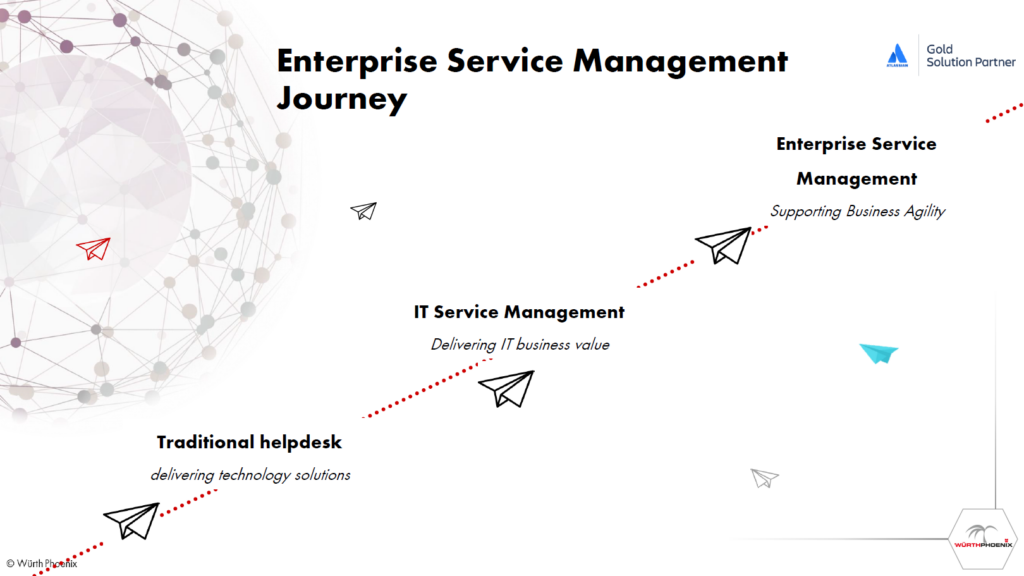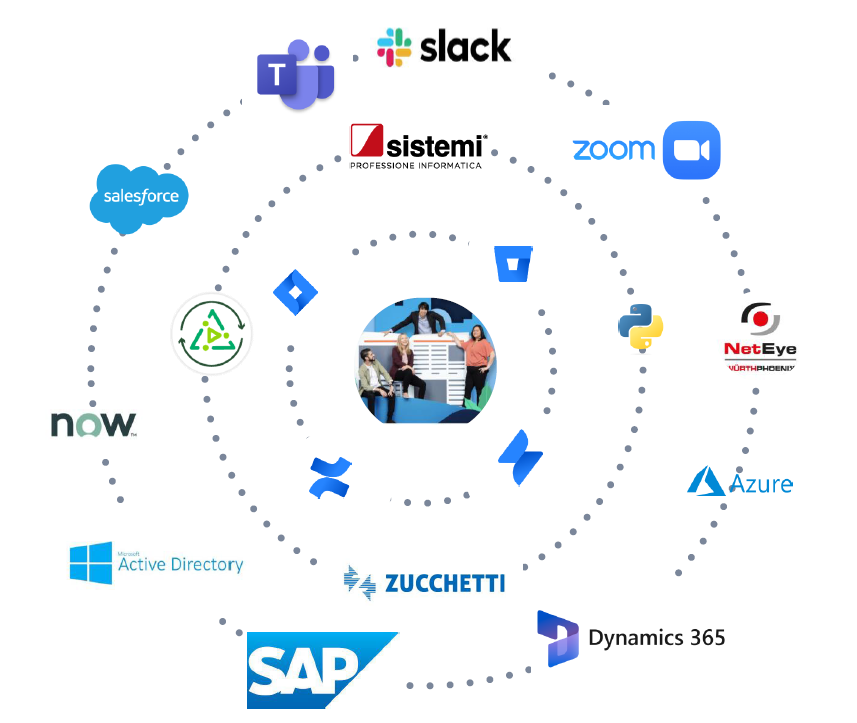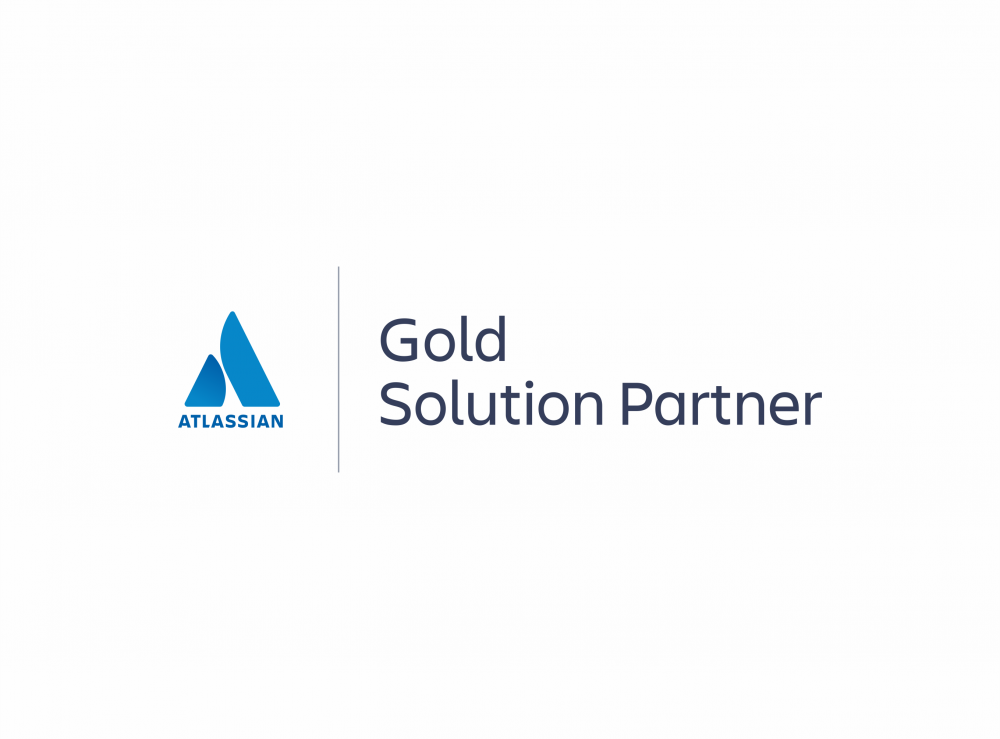Given the rapidly evolving business landscape, advancements in technology, and the increasing expectations of customers, companies must adopt a mindset of business agility, and Enterprise Service Management (ESM) represents a solution for companies striving to maintain competitiveness in the market.
💡 Enterprise Service Management is the extension of IT Service Management (ITSM) principles outside of the IT department to the whole company, to enable better service delivery for business teams like Human Resources (HR), legal, facilities, marketing, and finance.
👉🏻 Example: HR managing requests for employee onboarding.

What’s behind the rise of Enterprise Service Management
The concept dates back to 2017, because more and more teams outside IT started requesting and offering services.
The process has sped up in the past years for several different reasons:
🔵 customer experience: customers demand faster and better support
🔵 ITIL, DevOps, Agile: organizations have started adopting Agile practices to be able to adapt to fast-changing environments
🔵 Remote Work: more and more employees are working from home, and the pandemic has certainly accelerated this process
🔵 ROI: companies want to “shift left”, which means they want to provide support to customers at lower costs, thus reaching “Level Zero Support”.
Therefore, it is possible to say that Enterprise Service Management is not an option anymore, but a “must” for companies if they want to stay competitive and quickly adapt to market changes.
Adopting ESM practices certainly has a number of advantages. Among them are:
✔️ improved employee and customer experience
✔️ improved cross-functional alignment
✔️ revenue loss avoidance
✔️ team performance & reporting visibility
✔️ business team productivity
✔️ confidence in data security
✔️ improved stability and scalability
but it doesn’t come without challenges…
❌ Business agility adoption
Many companies say they’re Agile… are they really? Embracing business agility doesn’t happen overnight and it certainly isn’t an easy task. It means involving the whole company and aligning on the same mindset.
❌ Process definitions
Without a proper analysis of internal and external processes, it’s impossible to define them correctly.
❌ Data Security & Legal compliancy
More shared data also means that questions about data security arise. Companies will certainly need to improve their data security practices, to avoid sensitive data is shared.
❌ User’s resistance to change
Resistance to change can be a big issue, when trying to introduce new ways of doing things. Employees need time to learn new processes and need to deeply understand the “why”.
❌ Technologies
Organizations become more and more data driven and they start to implement many disparate technologies from different vendors. Without planned and shared integrations, the likelihood that these technologies lead to data silos increases. This leads to difficulties when scaling up for medium-size organizations, and increased costs and chaos for larger ones.
An advantage of ESM is that you can apply the same tools that were already mature inside ITSM and apply them within the ESM processes.
💡 OUR EXPERIENCE
There are different solutions and technologies that can help organizations supporting ESM: in fact, people’s skills and knowledge are certainly important, but you need a technology to support these processes.

At Wuerth Phoenix we identified the Atlassian suite, especially Jira Service Management, as the right solution to support the adoption of ESM. Thanks to its integrations with different vendors, companies can benefit from a Single Source of Truth that seamlessly integrates with the different solutions.
ABOUT US
Würth Phoenix is an IT and consulting company belonging to the Würth Group, with over 20 years of international experience.
We are an Atlassian Gold Partner and our team of ITIL, Agile and Prince2 certified consultants helps enterprises in their Agile and digital transformation process.

Did you find this article interesting?
Does it match your skill set? Our customers often present us with problems that need customized solutions. In fact, we’re currently hiring for roles just like this here at Würth Phoenix.






